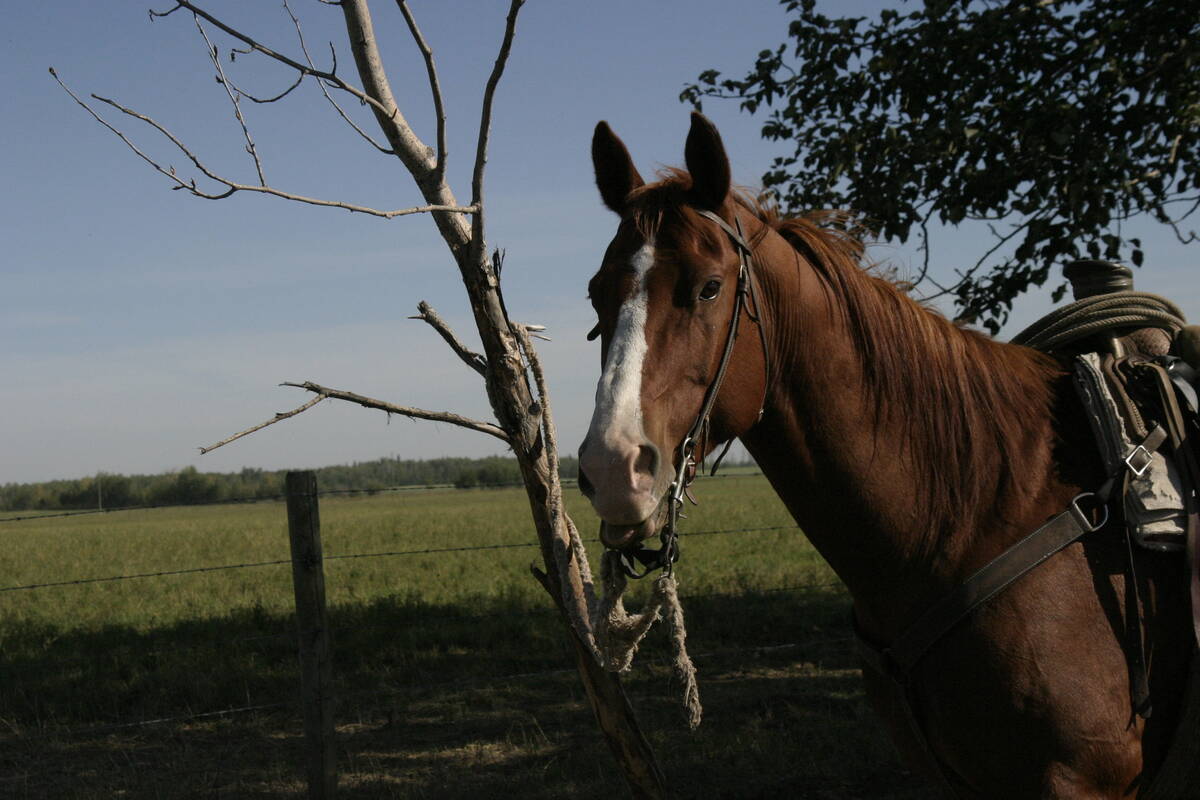CRESTON, B.C. —The years-old dispute over the legitimacy of country-of-origin labelling in the United States continues to drag on as livestock producers and processors wait for decisions from the World Trade Organization and a U.S. court of appeal.
“It appears at this point it is something that is going to take a long time to roll out,” said Dan Darling, vice-president of the Canadian Cattlemen’s Association.
There seems to be agreement in Canada, the United Sates and Mexico that the law needs to be fixed, but nothing is happening, he told the British Columbia Cattlemen’s Association annual meeting in Creston May 22-24.
Read Also

Horses challenged when asked to be weekend warriors
Horses are creatures of consistency. Their bodies and nervous systems are designed for steady, rhythmic movement, low-intensity grazing and regular social interaction.
The WTO has heard an appeal of the latest version of the law, but a decision is not expected until summer. The countries will receive the decision first, followed by a public release at a later date, said Ryder Lee of the CCA.
If the WTO finds the U.S. rule to be acceptable, Canada would then appeal.
Canada has published a list of possible commodities subject to a retaliatory tariff. Mexico is circulating a list among its senators, but it has not been published.
“It appears 2015 might be our earliest opportunity to retaliate,” said Darling.
Canada estimates it has lost $100 per head due to the restrictions that the law has caused when cattle are exported to the U.S.
However, a weakening dollar has prompted some U.S. packers to start buying finished animals again to keep their plants open because of a shortage of cattle.
In addition, prices have achieved record levels on both sides of the border.
“Where would our prices be if we didn’t have this COOL legislation, not only in finished cattle but stocker cattle and breeding stock?” said Darling.
Eleven judges on the U.S. Court of Appeals for the District of Columbia recently heard oral arguments in a review of the livestock industry’s lawsuit against COOL.
The case revolves around the free speech rights guaranteed in the first amendment of the U.S. Constitution.
Canadian and Mexican producers, as well as some American producer groups and U.S. packers, argue those rights are being violated by the requirement that they stamp country-of-origin labels on meat packaging. The anti-labelling arguments were made by a lawyer for the American Meat Institute, a North American association representing packers and processors.
U.S. government lawyers made opposing arguments.
The appellants said the labelling requirement is not only costly from a logistical standpoint but also amounts to the American government forcing them to divulge information for illegitimate reasons, which, they argue, violates first amendment rights.
The lawyer for AMI argued that the rules are pure protectionism, disguised as an attempt to help consumers learn about the origin of their food.
A lawyer for the American government denied the rules were designed with protectionist aims but were intended to give consumers more choice.















